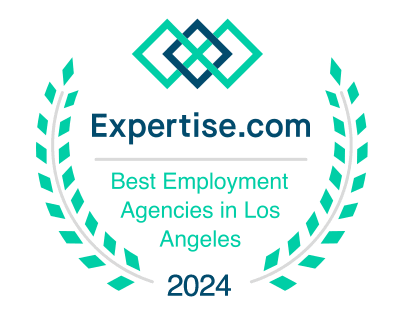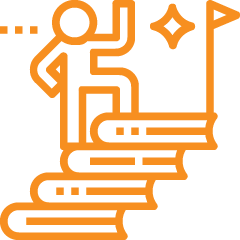Frequently Asked Questions
Career Tools
Resume Tips
From presentation to content, there are many things to consider when building a successful resume. Employ the strategies below and it’s quite possible your resume could end up atop the stack.
Use a quality paper stock.
Submit your resume on a paper stock the reader will remember. That is, one that looks and feels valuable…just like you, the candidate presenting it. Generally, a paper high in cotton will give off this professional feel. As for color, you can never go wrong with white or ivory.
Presentation matters.
Make your resume stand out by handing it off in a presentation folder or a 9 x 12 mailing envelope to both protect it and give it greater presence.
Content is key.
There is no universal resume format—only guidelines. To up your odds for success, please consider the following when constructing a compelling resume:

- Sell your qualifications by focusing on accomplishments and results rather than routine job descriptions.
- Provide a concise, factual and positive recounting of your education, experience and accomplishments.
- Provide information throughout your resume that is relevant to prospective employers, supports your candidacy and focuses on the skills needed to do the job you’re applying for.
- Be conscious of the continuity of your work history. The reader will be looking for reasons to eliminate as many resumes as possible, so a resume with gaps of unaccounted for time could land in the circular file—the trash.
- Considering the proliferation of social and career networking sites (such as LinkedIn), be sure you’re being consistent with how you represent your work history on your resume versus your online profiles. Nothing scuttles interest faster than a candidate with suspicious resume details.
- Choose your words carefully. Select strong action verbs, concrete nouns and positive modifiers for emphasis. Use concise phrases and clauses rather than complete sentences.
- Keep a separate list of references and make them available only upon request.
Finally, always send a cover letter on matching paper referencing the company’s needs, and your qualifications for the job. A personal letter is always best, so make an effort to get the name/title of the individual in charge of hiring. Remember, your resume is only a door opener. Your ideal goal is to get the in-person interview!
How to Ace Your Interview
Article Courtesy of the Los Angeles Times CareerBuilder section
You’ve heard the standard questions dozens of times but know that your answers haven’t always overwhelmed your interviewers. If everyone’s asking the same questions, how can job seekers provide answers that make them stand out from others? We gave our CareerBuilder experts a few standard interview questions and asked them for some insight into what makes an effective response. Of course, you’ll want to personalize and build upon their answers.
Q: “Why should we hire you?”
A: “There are three reasons why I’m your best choice. First, I have the skills and experience to excel at this job. Second, your company is in an industry that I know and/or that I have a passion for. And finally, I’m not looking for just a job. I want a career opportunity that will help both me and the company prosper. I would be proud to work with a company of your reputation and would dedicate myself to the company’s needs and goals.”
– Barry Wohl, president, Carolina Career Resources, Charlotte, N.C.
Q: “What are your strengths?”
A: “Remember, the most often hired candidates are those who prove they can do the job and are persistent. Communicate in a way that demonstrates your ability to produce results. Use result-oriented picture words such as “enlarge” and “accelerate” rather than process words like “interface” and “modify.” Rehearse your knowledge of the job with a friend beforehand.”
– Jim Johnston, managing director, Marston Mills, Inc., Chicago
Q: “What are your weaknesses?”
A: “My weaknesses are my treasures. They reward me with more and more learning about myself and others. That learning fuels continuous self-improvement. Here are my greatest treasures…”
–William Henning, president, Performance Development Systems, Burns Harbor, Ind.
Q: “Tell me about the best boss you’ve ever had.”
A: “My best boss was someone who promoted an open-door policy. I had enough independence to feel confident in making decisions and if I was unsure of something, I could go to her for direction. Goals were set high for our team, and we were always challenged to do better. Our boss was a tough but supportive and encouraging manager who strived to ensure we excelled. I grew both professionally and personally under her tutelage”– Vicki Layde, CPC, senior consultant, The Opportunities Group, Chicago
Q: “Where do you see yourself in five years?”
A: “The interviewer is usually looking to see if your aspirations fit the realities of the organization. This question can also be a way of gauging your level of ambition. Some organizations would like to hear you say that you plan to be their president in five years. Others would immediately screen you out for the same answer. Suggest career paths that you know are realistic and reasonable for the organization and the opportunity.” – Teri Hires, senior vice president, Lee Hecht Harrison, Houston
Q: “What was the best part of your previous job?”
A: “I believe that the interviewer is just trying to get to know you. In addition, they want to evaluate what motivates you and at what level. Will you thrive in their environment? Are your goals aligned with the responsibilities of the position? This question is a gift question as it is easy to answer and offers an excellent opportunity for the candidate to shine. I would recommend that candidates answer this question with multiple examples and without hesitation!”
– Carolyn Dougherty, CPC, IntelliSource, Inc., Narberth, PA
Keep interview information focused on the job.
It’s important to choose words wisely during an interview. Judy Kneisley, senior vice president and general manager for Lee Hecht Harrison in Los Angeles, says that it’s crucial not to reveal too much information about your personal life. “If someone asks about your hobbies, tell them that they are not overly demanding of your time,” says Kneisley. “Instead of saying you run in marathons, just say that you enjoy running.” Kneisley also stresses the importance of remaining flexible and not reacting too much to personal questions, even those you know cross the ethical line. “An unskilled interviewer may ask if you have kids at home,” says Kneisley. “Just say you’ve got that handled and move on. Don’t ask how it applies.”
You spent many hours rehearsing your interview and so far, your preparation is paying off. You eloquently speak of your strengths, your weaknesses, your special skills and your long-term goals. Your interviewer enthusiastically nods at each response you provide. You figure you’re a hearty handshake away from a job offer. And THEN the final question freezes you in your chair:
“Do you have any questions for me?”
Smart job seekers know that no matter how impressive their interview has been up to this point—it could all be blown right here. By the same token, it can also be a great opportunity to shine.
A sampling of questions candidates could ask, include:
- “What are you looking for in a successful candidate?”
- “What are the most immediate needs in this position over the next few months?”
- “What expectations do you have for this position long-term?”
- “What is the most difficult challenge a person will face in this position?”
- “Can this position lead to other career opportunities? If so, what type of positions?”
- “Is the position vacant now? If so, why and for how long?”
- “What is your time schedule for filling the position?”
- “What is the next step in the process?”
- “What are the top three objectives you would like to see accomplished—and in what time period?”

Advance Preparation
Below are four key questions you MUST know how to answer persuasively in advance of any interview. This will not only give you the material needed to build a strong resume, but will help you maximize your interview potential and networking opportunities, as well.
1. What kind of job are you looking for?
Understand exactly what position you’re targeting—and what those job duties usually entail—so that you can immediately demonstrate to prospective employers that you understand the position you’re applying for. On a resume, this could be your “Objective.”
2. Why are you qualified to do it?
That’s the summary or “Professional Profile” section. This is where you outline the skills and credentials that qualify you for the job. You can break your skills into functional sections or use bullet points to highlight key points. If this section is done properly, it will convince prospective employers that the rest of your resume is worth reading.
3. Where have you done it?
That’s the “Experience” section. The reader needs to know who you’ve worked for, the city and state where they’re located and what you did while there. Ideally, your job descriptions should include many active verbs and focus on keywords and functional skills that are most relevant to your job target.
4. How well have you done it?
The best accomplishments are those that demonstrate quantifiable results and your willingness to go “the extra mile.” Did you come up with an idea that saved the company money? Were you promoted because of your team building skills? Were you selected for a key program because of your positive attitude? Whenever possible, describe how you improved an employer’s bottom line (i.e. doubled sales, cut costs, reduced errors, streamlined processing or improved efficiency.)
Increase Your Value
Do you ever wonder why some people are constantly on assignments—regardless of skills or experience—while others rarely get them? More times than not, the difference is how these people “market” themselves to clients while on jobs—and to Staffing Specialists in between them.
To increase the odds that you’ll stay happily employed, please adhere to the following:
1. Be as flexible as humanly possible.
When it comes to how far you’ll travel, your hourly rate and the industry you’ll work in, being open-minded can mean the difference between landing a job…and another day on the couch.
2. Between assignments, take advantage of the software tutorials TeamOne makes available to you.
New proficiency with computer software can increase your skill set—and boost your hourly earning potential. The more versatile you are, the more marketable you will be.
3. Once you get a job, ask your boss if you can take on additional tasks/responsibilities.
Take initiative. Be a go-getter. Assert your value by letting your boss know of any additional skills you may have—so he/she can put them to good use.
4. Be compatible with coworkers and supervisors—have a great attitude.
Being compatible is very important especially if you’re being considered for a full-time opportunity. Your attitude at work will also influence the references you get from that temporary employer once your assignment is complete.
5. Be professional. Treat the temporary position with the same professionalism you would a full-time position.
- Don’t forget the basics: attendance, punctuality and professional attire.
- Don’t abuse any privileges your temporary employer gives you.
- Don’t get too comfortable too quickly. Stay busy; ask for additional responsibility.
- If you get a full-time job while on a temporary assignment, give your temporary employer as much notice as possible. Don’t burn any bridges as you leave.
6. Keep the lines of communication open with your recruiter—even if you are on a temporary assignment.
Remember that TeamOne is your employer and your rep is your point of contact. Always feel free to consult them for guidance and advice. They’re the ones who can make life easier for you—and help you land your next assignment.
7. Be willing to meet with a TeamOne associate on short notice.
Jobs orders are being filled constantly. The sooner you can meet with a Staffing Specialist once one becomes available, the more likely it is that you’ll be placed.
8. Be reachable.
If a job order comes in that your TeamOne representative deems you well-suited for, we will contact you immediately. Please make sure we have all your relevant contact information, including:
- All phone numbers where you can be reached.
- An email address that you check regularly.
Adjusting to Your New Job
Congratulations, you’ve landed an assignment—now what?
Stepping into a new job can be awkward, not to mention, intimidating. The skills you display and precedent you set in your first few weeks will lay the foundation for your career with that company. The sooner you are able to settle in and adjust to your new position, the sooner you’ll be able to impress your new boss. That means learning how to approach your work, your superiors and coworkers—so you can acclimate quicker to your new work culture. To thrive in your new work situation, follow these tricks of the trade:
1. Learn what it takes to be successful in the new environment.
- Let go of your old way of doing things as it could hinder your transition to your new setting.
- Observe, listen and talk to new coworkers to increase your comfort level.
- Avoid making snap judgments about your new workplace.
2. Build the best possible relationship with your new boss.
- Establish a pattern of good communication.
- Develop a clear understanding of his/her expectations of you as an employee.
- Cultivate a good rapport, and always remember to be professional and respectful.
3. Develop relationships with your new coworkers.
- Step out of your comfort zone and get to know people.
- Keep your personal life personal. Keep your conversations professional.
- Avoid cliques and stay out of office politics.
- Choose your friends carefully. Do not become associated with the wrong people.
4. Go the extra mile by doing more than what’s expected of you.
- Improve your situation down the line by establishing a reputation early on for being proactive and hard-working.
- But always remember that you will be held to the standard you establish in your first few weeks. Make sure you only take on what you can handle to avoid unreasonable expectations in the future.
5. Find a mentor and get involved with extra-curricular activities.
- Joining committees or work-sponsored volunteer events are great opportunities to develop relationships with coworkers and to learn company values.
- By finding a mentor, you will learn the culture of your new environment faster, fit into your new job easier and gain seasoned insight from a superior.
Safety in the Workplace
No matter what the job, your safety and well-being are of foremost concern to TeamOne.
That’s why it’s essential that you develop good safety habits and continually respect safety rules inside any workplace. To help you maintain the highest possible safety standards, our representatives often visit job sites to ensure great attention is paid to these details—and that our employees are not exposed to dangerous activities or potentially hazardous work conditions on any job site.
In addition, TeamOne will also train you about safety rules and if necessary, provide you with personal protection equipment to perform your job. In the event of an injury, it is TeamOne who pays for it—that’s why we must be diligent to protect against injury claims. As a result, TeamOne has instituted the following in the name of keeping you safer and your job, more secure:
- Video surveillance on job sites to promote a consistently safe workspace where co-workers aren’t jeopardizing your future.
- Immediate medical care for legitimate and timely reports of accidents or injuries.
- An information hotline with a $1,500 reward for information leading to the successful prosecution of workers’ compensation fraud. (To report fraud, please call. All information will be held in the strictest of confidence.)







